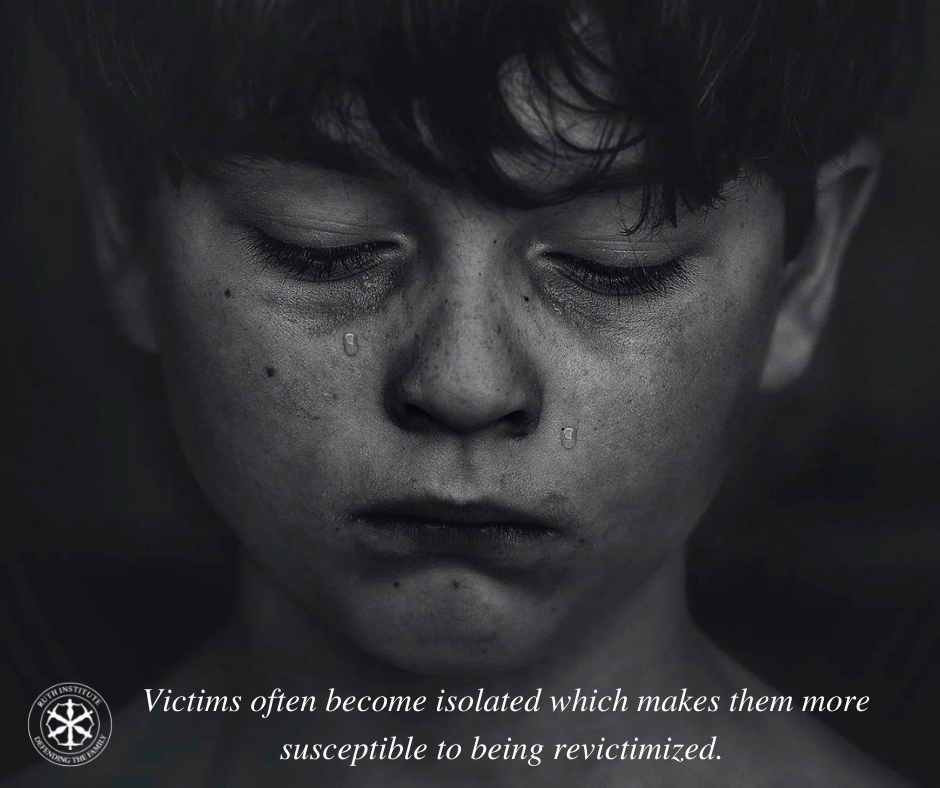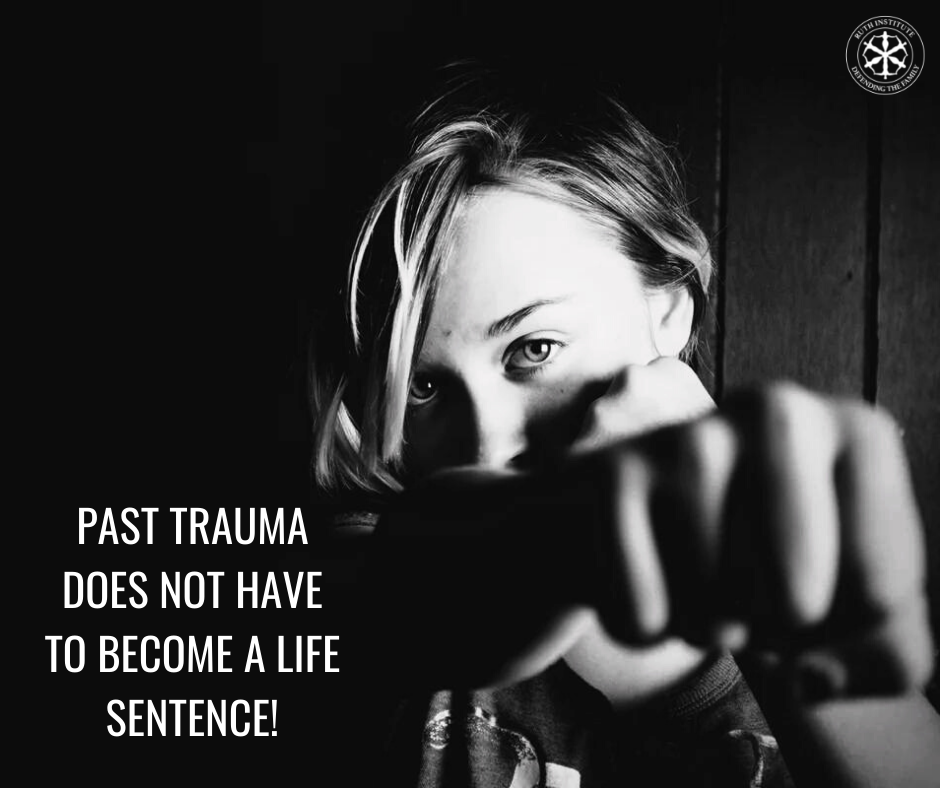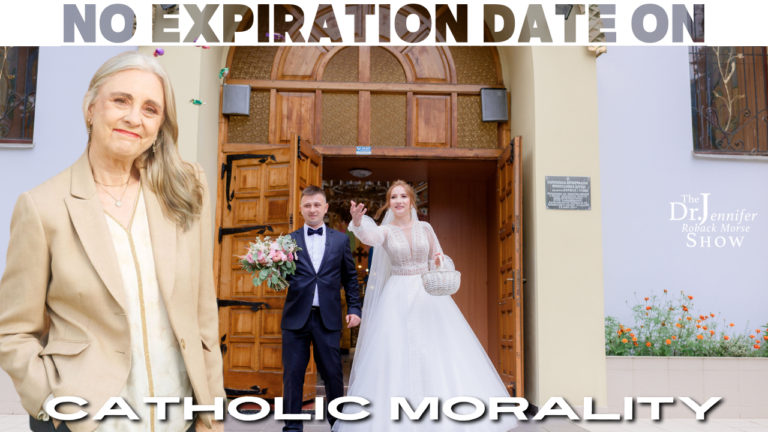A lot of my followers have asked how they can avoid being revictimized after being sexually abused since they wish to form good, healthy relationships, the ultimate goal being marriage. Since these questions regarding relationships, marriage, and revictimization can go hand in hand, I am going to tackle these questions throughout my next few blog posts.
In this blog post, I am referring to abuse that is direct and intentional. I make this distinction because victims can feel revictimized in a variety of situations. For example, medical evaluations or police interviews can bring up very painful memories, causing a victim to feel as though they are reliving their past trauma. The revictimization referred to here pertains to victim’s who fall prey to an abuser.
People who have been previously victimized have a higher likelihood of being revictimized later on. First off, no matter how many times someone has been abused, it is never their fault. Unfortunately, survivors who come forward on multiple occasions typically find that their stories are met with confusion and disbelief.
Some reasons for revictimization include:
- Adaptation to abusive situations and environments – victims come to expect abuse when it has been a part of their life. Abuse becomes familiar and a victim learns that he or she is incapable of avoiding abuse. This is referred to as learned helplessness.
- Low self-esteem – abuse victims usually struggle with feelings of shame and blame, leading to very low self-esteem. It’s easy to fall into the mindset of, “I deserved this. I did something to deserve this.” For many victims, the abuse becomes who they are.
- Social isolation and avoidance – victims often isolate themselves due to shame and blame and abusers who have groomed their victims also seek to keep their victims isolated. When a victim is isolated, they become more susceptible to continued abuse by the same abuser or to being revictimized by another individual. Shame and guilt also cause victims to isolate themselves more. When someone is isolated and lacks a support system to back them up, they become less protected from individuals who wish to do them harm.
- Inability to control intense emotions and triggers – if a victim is suffering from (for example) intense flashbacks and has no idea how to regulate their emotions, it is easier for an abuser to take advantage of their helplessness. Triggers can cause victims to feel sadness, anxiety, or panic and those emotions can make them shut down. Again, this makes it easier for an abuser to take advantage of them.
- Engagement in risky behaviors including drugs, alcohol, and sexual behaviors – behaviors such as these (common after abuse) can impede a victim’s ability to recognize the red flags of a potential predator who is trying to groom them. *For more information on the grooming process, please see this blog post.
- Dissociation – PTSD and severe emotional and physical distress are very common after abuse. While the body and brain try to regain a sense of stability and normalcy, sometimes it is the normal responses that cause a victim to become more susceptible to further abuse. When a victim experiences dissociation, they feel disconnected from themselves and from the abuse that is going on. It’s a defense technique that allows a victim to get through a traumatic situation.
- Many people (including abuse survivors) in our society have been desensitized to abuse – due to the glorification of violence and sexual behaviors in movies and in the media (let’s face it, we are surrounded by sex in particular because “sex sells”), survivors can start to think that the abuse they have endured is normal and acceptable or “no big deal.” They forget just how wrong abuse is and how much it negatively impacts lives, now and for future generations. Survivors may even make light of their experiences especially when people around them are making light of abuse.

Here are a few suggestions of what NOT to say to someone who has been victimized more than once:
“How could this happen to you more than once?”
“Didn’t you learn from what happened the first time?”
“It must have been something you did.”
“It’s your fault that these things keep happening to you.”
If you are trying to help someone who has experienced multiple cases of abuse, it is best that you do your research, get educated, and get the help you need in order to help them work through their trauma.
Two things to note:
First, sadly, some victims (especially those who have not gotten the help they needed) turn into abusers themselves and other victims can fall prey to their abuse. When abuse becomes normalized for someone, they are more likely to become abusers themselves. It’s easy for a victim to feel a connection to another victim. Abusers are master manipulators regardless of their history but having been abused themselves allows them to more easily manipulate and exploit someone else.
Second, something else that is important to note is that healing is a lifelong process. How you heal changes as you and your life circumstances change. Triggers may become different, how you handle triggers change, your support system may change, etc. As a result, it seems a bit unrealistic to advise someone to completely heal before entering into a relationship. I would argue that anyone can still be somewhat broken and yet enter into a healthy relationship. However, both parties must have healed enough from past traumas so that they can be self-aware and also recognize any harmful patterns that could be developing.
Here are some tips for working towards avoiding revictimization:
- Get the help you need. It doesn’t seem fair that you should have to do all the work when someone else has done the damage. Unfortunately, there is no other way to heal and move forward than to do the work. This means accepting what has happened and committing to working through it so that you can move forward in your life without the trauma owning you. Getting help can include finding good professional medical and mental health professionals to assist you, educating yourself on the different aspects of abuse (particularly grooming and red flags), and learning the skills and techniques to help you on a day-to-day basis
- Focus on love and compassion towards self
- Develop good support systems including (whenever possible) family, friends, medical and mental health professionals. Don’t be afraid to communicate with these individuals. They are there to help and assist you! If you have a question about something, don’t hesitate to ask!
- Practice good self-care – this includes caring for your mind, body, and spirit. Remember that they are all connected.
- Practice self-defense or carry a legal personal weapon (what is legal depends on whatever state you reside in). Although this is not an approach that works for everyone, it can empower survivors enough so that they feel that they have an option to potentially defend themselves. According to the PsycInfo Database Record, self-defense training prepares men and women both mentally and physically for potential assaults. Training provides them with opportunities to learn, observe, and practice physical, social, and cognitive skills, giving participants a new set of assertive and combative responses to various forms of intimidation and threat pertaining to sexual violence.
A quick note in regard to self-defense or carrying a weapon: this is not something that can promise to absolutely prevent abuse of any kind. It is an option and a tool for some people. The fact that someone is trained in (for example) martial arts, still does not promise that he or she will never become victim to any kind of violent assault or abuse.

If you are a survivor of abuse, try not to be so hard on yourself! Be patient with yourself. It’s tough to navigate trauma and also whatever season of life you may be in. If your goal is to form good, healthy relationships with the ultimate goal being marriage, do be sure that you are truly ready for a relationship before diving headfirst into dating. It is far better to care for yourself first and learn some techniques for avoiding revictimization rather than finding yourself in another abusive situation. Good, healthy relationships are possible, and they can be healing but if you are still in a deeply vulnerable state, you need to be able to get to a point where you can not only handle a relationship with all its highs and lows (including supporting another person in carrying their crosses) but to be able to more easily recognize potential red flags that could point to an abusive situation.
Remember, past trauma does not have to be a life sentence! It does not have to rule your life forever and you can break free from the chains of abuse! Wherever you are at on your healing journey, I encourage you to take things day by day. Take your time. This isn’t a race. Focus on caring for the person whose worth is far more precious beyond that of any earthly treasure. That person is YOU! Everything else will fall into place over time and with patience.

Do you have a question about victimization and/or healing? Email me at AskASurvivor@ruthinstitute.org. Your name and personal information will never be used in my public responses.



